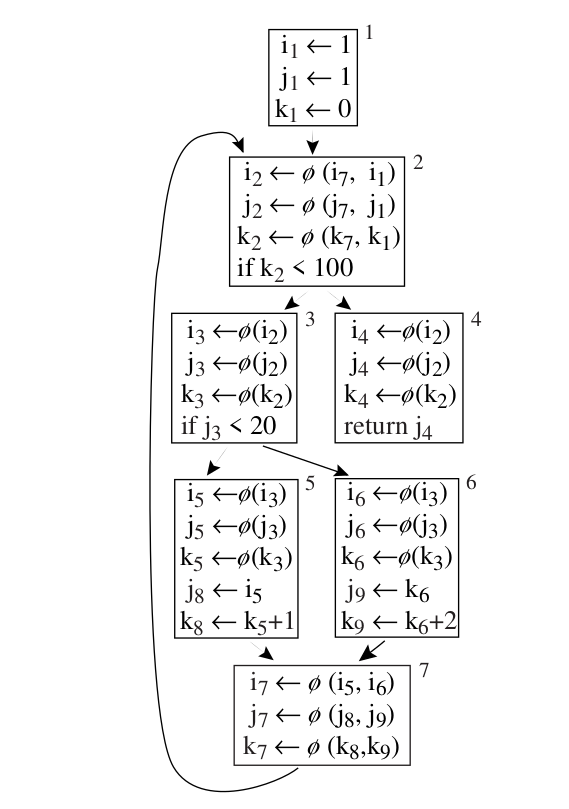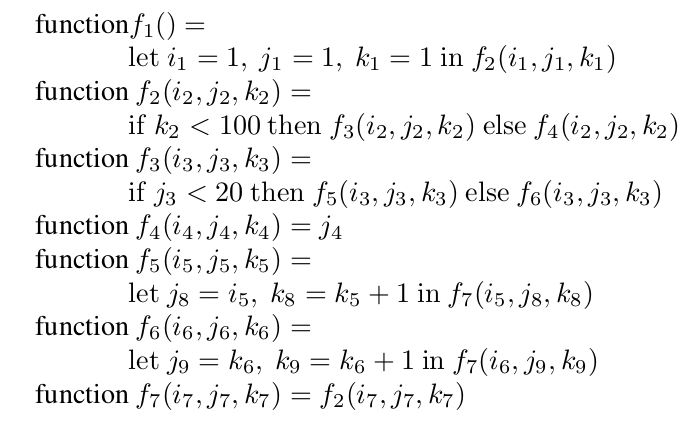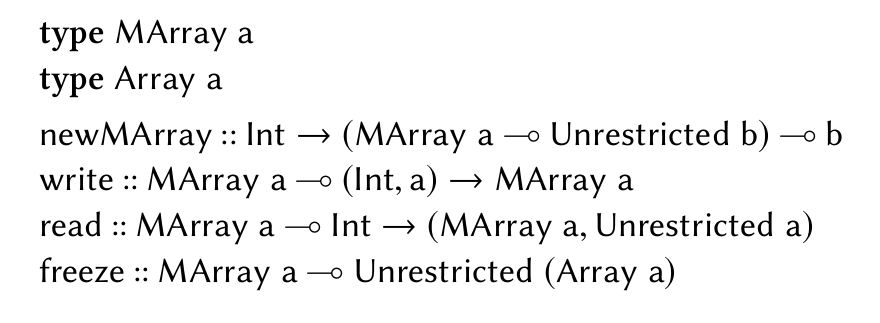Thoughts on linear types and compilers
Arnaud Spiwack

Pure languages
f :: a -> b -- A mathematical function
f x = …
-- Can't mutate x
-- Can't read a file
-- Can't print on stdoutCommon subexpressions
…
e
…
e
…Both are the same
Inlining
f x = e
…
f u
…=
f x = e
…
e[x\u]
…SSA is kind of about purity


\approx
Linear types
{-# LANGUAGE LinearTypes #-}
f :: a ⊸ b
f x = … -- consumes x exactly onceSince GHC 9.0
Linear types, by examples (1/3)
id x = x✓
linear
dup x = (x,x)✗
not linear
swap (x,y) = (y,x)✓
linear
forget x = ()✗
not linear
Linear types, by examples (2/3)
f (Left x) = x
f (Right y) = y✓
linear
✓
linear
✗
not linear
h x b = case b of
True -> x
False -> xg z = case z of
Left x -> x
Right y -> yk x b = case b of
True -> x
False -> ()✓
linear
Linear types, by examples (3/3)
f x = dup x✓
linear
✗
not linear
h u = u 0g x = id (id x)k u = u (u 0)✓
linear
✗
not linear
Mutable arrays

IO Monad
type IO a = RealWorld™ -> (a, RealWorld™)
readLine :: Handle -> IO Stringtype IO a = RealWorld™ ⊸ (a, RealWorld™)
readLine :: Handle -> IO StringAbstract machines
\langle c | \kappa \rangle
Code
Stack
Continuation-passing(ish)
Seel also A dissection of L — Arnaud spiwack
\begin{array}{lcl}
u\,v & \leadsto & \mu(\kappa).\,\langle u | v \cdot \kappa \rangle \\[3mm]
\lambda x.\,u & \leadsto & \mu(v \cdot \kappa).\,\langle u[x\mapsto v] | \kappa \rangle
\end{array}
https://slides.com/aspiwack/edinburgh-201103
https://www.tweag.io/blog/tags/linear-types/